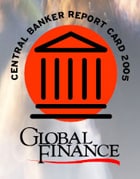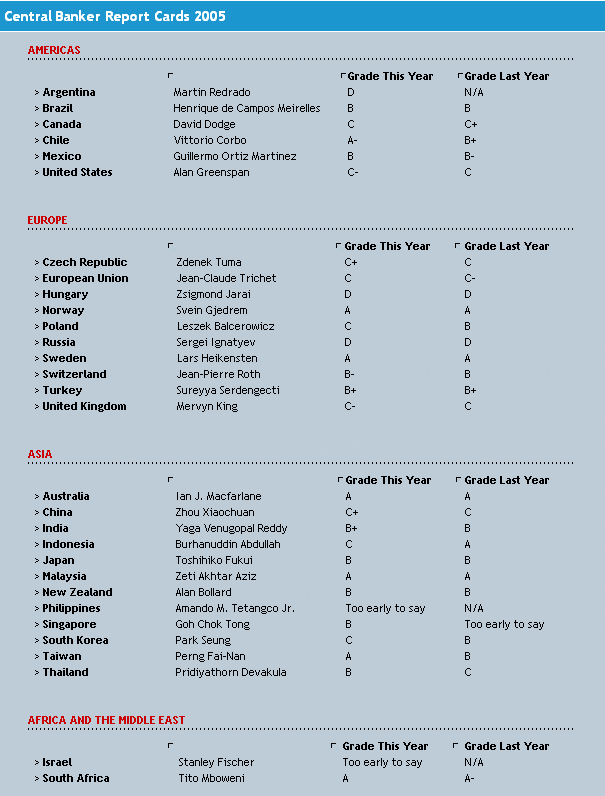
After enjoying a couple of relatively peaceful years, the worlds central bankers suddenly found themselves with a lot more work on their hands. Over the past year theyve faced some unexpected challenges. Few central bankers would have predicted, for example, that oil prices would double and that other commodities would see sharp price rises, too.
For those in commodity-exporting nations, the rising prices are both a boon and a handicap. Certainly, the extra cash flooding in brings many benefits. Chiles Vittorio Corbo has watched happily as the recent jump in copper prices has pumped up his countrys economic growth. At the same time, though, he has to contend with the consequences, including rising inflation.
Indonesias Burhanuddin Abdullah has an even more daunting task. His country has become a net importer of oil, so higher prices are making a substantial dent in the countrys finances. The fact that Indonesias government is committed to keeping fuel prices low through subsidies only adds to his woes.
The gyrations in the value of the dollar have also taken some by surprise. Having settled into a steady, gentle slide last year, the greenback staged a remarkable recovery over the first half of this year. Many central banks had been quietly adjusting their reserves to reduce their exposure to the dollar, and the recent turnaround has left them wondering if they might have moved too far, too fast.
Unexpected events such as these really test the mettle of a central banker, and it is how they respond that marks out the great from the merely competent. Being a successful central banker in a benign economic environment takes far less skill, resolve and courage than it does when times get rough. Hearteningly, the majority of this years crop seem to be coping well with the challenges theyve faced.
And after a couple of years in which he seemed to have lost his magic touch, the most well-known central banker of all, Alan Greenspan, seems to be getting back in form. In February, for example, he mused that low bond yields were a conundrum. Within a week, yields were rising. It appears that Greenspans ability to move markets has returned. Some are concerned, however, that he might be maintaining his tightening bias for too long, risking another bumpy landing for the economy.

Contributors: Gordon Platt, Anita Hawser and Joachim Bamrud. Edited by Dan Keeler.

